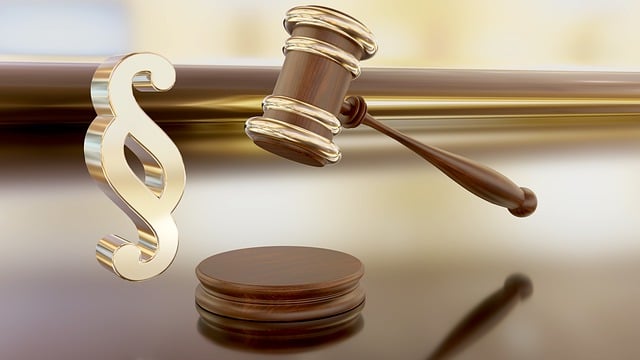Whistleblower Protection Lawsuits play a vital role in uncovering unethical practices, incentivizing employees to report corporate misconduct. The Sentencing Guidelines Reform has significantly enhanced protection for whistleblowers, impacting court decisions and encouraging cooperation with law enforcement. Policy changes prioritize their safety, fairness, and support, streamlining procedures and reducing risks, ultimately fostering ethical reporting and transparency within organizations.
Whistleblower Protection Lawsuits are crucial in exposing corporate wrongdoing and ensuring accountability. This article delves into the complex world of these lawsuits, focusing on understanding their significance, exploring recent reforms like Sentencing Guidelines, and highlighting critical Policy Changes aimed at enhancing whistleblower safety and support. By examining these key aspects, we aim to provide insights into how these legal mechanisms foster a more transparent business environment.
- Understanding Whistleblower Protection Lawsuits
- Sentencing Guidelines Reform: Impact and Implications
- Policy Changes: Enhancing Whistleblower Safety and Support
Understanding Whistleblower Protection Lawsuits

Whistleblower Protection Lawsuits are a critical aspect of ensuring that individuals who expose unethical or illegal activities within organizations are safeguarded. These lawsuits play a pivotal role in incentivizing employees to come forward with information that could lead to significant policy changes and sentencing guideline reforms. By providing legal recourse for whistleblowers, the legislation aims to deter corporate misconduct and promote transparency.
Understanding these lawsuits involves recognizing the challenges faced by whistleblowers who often risk their careers and personal well-being to bring light to wrongdoings. A successful whistleblower protection lawsuit can lead to achieving extraordinary results, including winning challenging defense verdicts and securing substantial financial compensation or policy changes that benefit the public interest. This, in turn, reinforces a culture of accountability within corporations, encouraging general criminal defense strategies that prioritize ethical conduct and compliance.
Sentencing Guidelines Reform: Impact and Implications

The Sentencing Guidelines Reform has significantly reshaped the legal landscape for whistleblower protection lawsuits. This policy change has had a profound impact on how courts approach white-collar and economic crimes cases, particularly those involving corporate whistleblowers. By altering sentencing practices, the reform aims to discourage unlawful conduct while incentivizing cooperation with law enforcement. One notable effect is the potential for reduced sentences or avoiding indictment entirely for individuals who provide substantial assistance in investigations, thereby encouraging more people to come forward as whistleblowers.
This reform underscores a broader trend of recognizing the critical role whistleblowers play in exposing corporate misconduct and promoting transparency. With an unprecedented track record of successful cases, the new guidelines send a strong signal that protecting whistleblowers is a priority. As a result, companies are increasingly motivated to establish robust compliance programs to avoid legal repercussions and foster a culture of ethical behavior.
Policy Changes: Enhancing Whistleblower Safety and Support

In response to growing concerns about whistleblower safety, recent policy changes have been implemented with the aim of enhancing protection for those who expose corporate wrongdoings. These reforms, spearheaded by Sentencing Guidelines Reform, focus on providing stronger support systems and reducing potential risks for whistleblowers. By implementing more robust safeguards, individuals are encouraged to come forward without fear of retaliation or adverse consequences.
The revised policies also ensure that the process of seeking justice is fairer for both corporate and individual clients involved in whistleblower cases. This includes streamlining procedures and providing clearer guidelines on what constitutes valid evidence, thereby reducing the likelihood of a complete dismissal of all charges based on technicalities or procedural errors. Such changes foster an environment where ethical reporting can thrive, promoting transparency and accountability within organizations.
Whistleblower protection lawsuits play a pivotal role in upholding justice and promoting transparency. The recent Sentencing Guidelines Reform has significantly enhanced protections for whistleblowers, encouraging more individuals to come forward with crucial information. Additionally, policy changes focused on improving safety measures and providing support systems are vital steps towards fostering a culture of ethical reporting. By combining legal reforms and policy initiatives, we can ensure that whistleblowers are empowered to expose wrongdoings without fear, ultimately strengthening the integrity of our societal structures.






